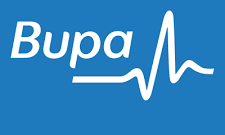Obsessive Compulsive Disorder (OCD) therapy
Obsessive Compulsive Disorder (OCD) therapy – learn to identify, manage and break your OCD symptoms, behaviours & habits with our London-based OCD therapists.
Get started now
Ready to start therapy?
Book Appointment
Speak To Someone
Obsessive Compulsive Order (OCD) explained
Many of us have certain habits, but when a habit turns into an act that you can’t control and affects your everyday life, it can be a problem. Obsessive Compulsive Disorder is where a person has obsessive thoughts and compulsive behaviours they cannot, or find difficult, to control.It can affect everyone; men, women and children. For some, symptoms can start as early as puberty but generally symptoms start during early adulthood.
Jump to section:
What do we mean by ‘obsessive’ and ‘compulsive’?
An obsession is an unwanted and unpleasant thought, image or urge that repeatedly enters your mind, causing feelings of anxiety, disgust or unease.A compulsion is a repetitive behaviour or mental act that you feel you need to do to temporarily relieve the unpleasant feelings brought on by the obsessive thought.
Our insurance partners










What are the most common symptoms of OCD?
OCD presents itself through a variety of symptoms, behaviours and habits. Symptoms can be visible or invisible through thoughts. Behaviours can be conscious and unconscious, obsessive and compulsive with continuous repetition.OCD is upsetting for the individual and often people are not sure where to turn for help or even that a counsellor or a psychotherapist can help. Sufferers experience a range of problems depending on the individual and the disorder or disorders. The disorder may be linked to other problems too. We can help.Symptoms often follow themes such as:● Fear of contamination or dirt● Arranging and re-arranging objects in an orderly and symmetrical way● Checking and re-checking thoughts and activities● Following a strict routine● Repeating behaviours● Avoiding certain people, activities, places, numbers● Thoughts of harm coming to people● Obsessive fearsThese symptoms can manifest as some of the following:● Washing and cleaning of self and possessions● Checking repeatedly that doors are locked● Counting in patterns and repeating behaviours● Checking an appliance, such as the oven, is turned off● Hoarding● Repeating thoughts and words in the mind, and out loud● Using special numbersThese obsessive and compulsive behaviours also include habits such as nail-biting, hair-pulling, thumb-sucking or scratching. Habits can be controlled, but they can also become addictions or obsessive compulsive disorders.
What causes OCD?
It’s not clear what causes OCD but a number of different factors can act as a trigger:● Genetics and family history – it’s thought that you are more likely to develop OCD if a family member has experienced OCD.● Life events – OCD may be more common in people who have been bullied, abused or neglected. OCD may also present after an important life event such as childbirth or a bereavement.● Personality – neat, meticulous, methodical people with high standards may be more likely to develop OCD, as well as those who are generally anxious or have a strong sense of responsibility for themselves and others.● Brain activity – some people with OCD have areas of unusually high activity in their brain or low levels of serotonin.
Together, our network of therapists have treated thousands of patients
Client success stories
“I just wanted to thank you for all your help. I really feel like I’m getting better and starting to become the person who I really am.”

Julie C.
Staines
“I’m so grateful to Pinnacle for giving me the chance to get rid of my fears and for my new found confidence.”

Jane P.
St. Margarets
“The best investment I have ever made, how can you put a price on quality of life? Would recommend for anyone suffering from anxiety.”

Nicola S.
Teddington
How a OCD therapist can help you
At Pinnacle, our specialist OCD psychologists use a range of different therapies to treat OCD. We know that ‘one size doesn’t fit all’ and that each of our clients is different and has their own set of unique needs and circumstances. Typically we use a combination of Cognitive Behavioural Therapy (CBT), and hypnotherapy, EMDR, as well as psychotherapy and counselling techniques.Using a combination of therapies is known as integrative counselling, and is used to make sure that the client gets the therapy that works best for them.
An OCD therapy case study
Sarah remembered being about 14 years old when she began to seriously worry about germs and her health, and the safety of those around her. She also found that she needed things to be perfect – perfect neatness in her house, perfect hair, perfect college homework, and this was beginning to be a real strain on Sarah and her family. Her mother persuaded her to see her GP at the age of 18, and she was referred for cognitive behaviour therapy (CBT).Sarah understood how her OCD had developed and was keen to stop the obsessive thinking and compulsive behaviours, which were getting worse all the time. She had gradually been increasing the behaviours that made her feel safe, for example washing her hands, avoiding physical contact with people, straightening the curtains, but this meant her life was getting extremely complicated and more frightening.The type of techniques that we used in the therapy process were:Thought Records – Sarah initially found it difficult to know what she was thinking, since she reacted mostly to the way she was feeling. By taking the time to record any thoughts associated with the feelings of discomfort, Sarah was able to recognise thoughts and thinking patterns that were generating or maintaining her anxiety.In Session and Homework: Exposure and Response Prevention – Sarah exposed herself to the situations that caused her anxiety, for example touching a light switch where she would usually respond by washing her hands, she would instead experience the anxiety without responding. She learnt that although the anxiety was initially very uncomfortable, she could cope with it and it would subside. She also realised that her predictions that something terrible would happen if she did not wash her hands, were not accurate.Sarah had 9 hours of CBT in total, including some follow-up appointments. Six months after therapy ended, Sarah felt she had overcome her OCD, was generally less anxious, said she felt “free”. She had applied to go to university, which had seemed unimaginable before the therapy.
What can you expect from an OCD specialist therapy session?
Our OCD therapy sessions are tailored to suit your needs. Each session usually lasts from 30 minutes to an hour; with courses usually consisting of around 6 to 12 sessions.
“Just dropping you an email to let you know how things have been with my nail-biting since our session. It’s been pretty incredible so far. I haven’t really bitten my nails at all. I have almost started a few times (though in a very incidental, rather than intense way) but each time just as my finger has drifted to my mouth, I just instantly and without thinking, lowered my hand! More than this though I have noticed a few interesting things that are maybe contributing or part of this.
Firstly I am very disinterested in my nails in a way I never was before, I never really think of them or look at them and that has felt really good. Secondly I have felt slightly more protective (for want of a better word) over my fingers, I have been washing them a lot and generally. They feel a bit smoother and cleaner, more sensitive and less the sort of things I would want to bite or get dirty or treat badly.
It has been a very light and easy change, I haven’t had strong urges that suddenly disappear or any strong conscious feelings towards not biting. I just haven’t wanted to in any way. I have been so surprised by this and I really have been amazed at what’s happened. I have been biting my nails everyday for 15 years and in the last four days I just haven’t. Quite extraordinary.
Karen – Mill Hill, London







